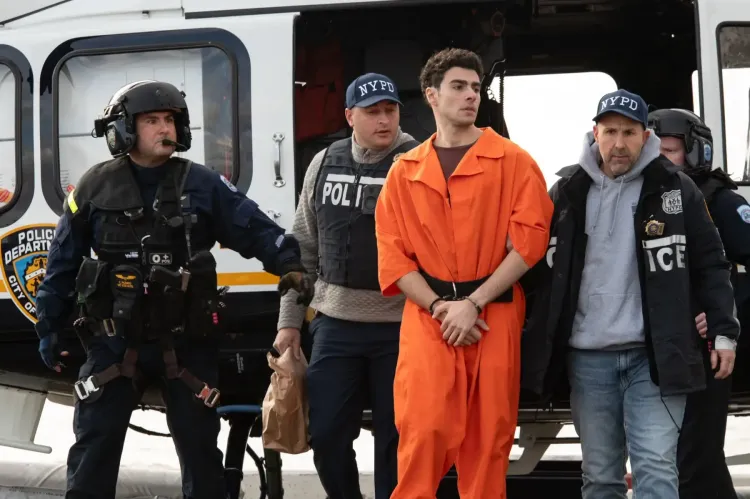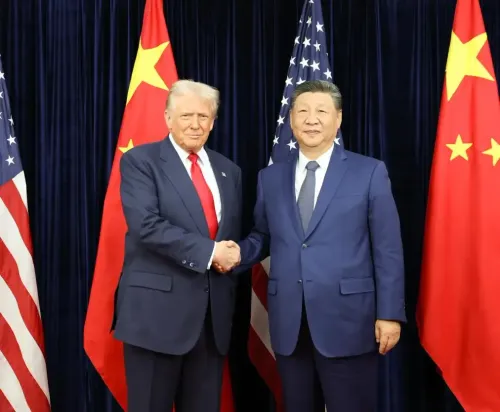Federal Authorities Bring Murder Charges Against Suspect in Health Insurance Executive's Death

New York, Dec 20 (NationPress) Federal authorities have brought murder charges against the alleged perpetrator of a health insurance company CEO's murder, putting him at risk for the death penalty.
Luigi Mangione was presented in a federal court here on Thursday after being extradited from Pennsylvania, where he was apprehended.
Previously, local authorities had charged him with terrorism and murder under New York law, which does not impose the death penalty.
An Ivy League educated software engineer and game creator, he stands accused of murdering United HealthCare (UHC) CEO Brian Thompson outside a hotel on Avenue of the Americas in Manhattan on December 4, using a 9 mm firearm equipped with a silencer, partially constructed with a 3D printer.
After the incident, he escaped on an electric bicycle, took a taxi to an interstate bus terminal, traveled via subway to a train station, and boarded a train to Pennsylvania, effectively obscuring his trail.
During a nationwide manhunt, a customer and staff member at a McDonald's in Altoona, Pennsylvania, recognized him and alerted law enforcement.
Luigi Mangione appeared in a local Pennsylvania court on Thursday morning, where he consented to extradition to New York and was subsequently handed over to city law enforcement.
Upon his helicopter arrival in Manhattan, agents from the Federal Bureau of Investigation took custody of him from local authorities and presented him in federal court.
In the U.S. federal legal system, states have their own laws; some permit the death penalty, while others, including New York, have abolished it.
A separate set of federal regulations exists, allowing the death penalty for certain crimes, and federal prosecutors asserted jurisdiction, claiming he had traversed state lines to stalk and kill Thompson.
Another aspect of the federal framework is that a state must initiate an extradition process to bring an individual arrested elsewhere.
Luigi Mangione voluntarily agreed to return to New York; had he refused, a prolonged process would have ensued for a Pennsylvania court to authorize his extradition. The federal case will run in parallel with the local New York case.
His attorney noted that the introduction of federal charges was "highly unusual" and that she had initially been informed he would be presented in a state court but was later notified of the federal court appearance.
In writings discovered on him, he expressed grievances against healthcare corporations, specifically targeting UHC and capitalism.
"Frankly, these parasites simply had it coming," he wrote.
"The U.S. possesses the most expensive healthcare system globally but ranks around 42nd in life expectancy. Corporations have grown excessively powerful, exploiting our country for immense profit because the American public has permitted them to do so," he stated.
This sentiment appears to have resonated with many Americans, igniting a wave of support for him.
When presented in the Pennsylvania court, several protesters showed up with slogans endorsing Luigi Mangione. He appears to resonate particularly with young voters aged 18 to 29, with 41 percent indicating that they found his actions acceptable or somewhat acceptable, according to a national poll by Emerson College.
In total, 17 percent of all voters shared this view.
In response to the support he received, acting federal prosecutor Edward Kim remarked that Mangione executed the attack "in a grossly misguided attempt to project his views nationwide. However, this was not a debate; it was murder."
The local case will likely proceed first, and the filing of federal charges seems to act as a safeguard should the local jury acquit him, also maintaining the looming threat of the death penalty.
Luigi Mangione, who hails from a wealthy family and had a promising career, appears to have been sidetracked by a debilitating back injury.










